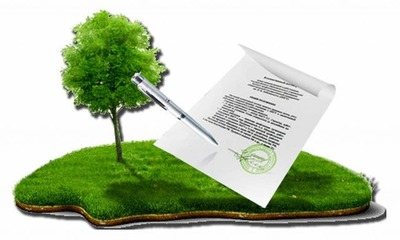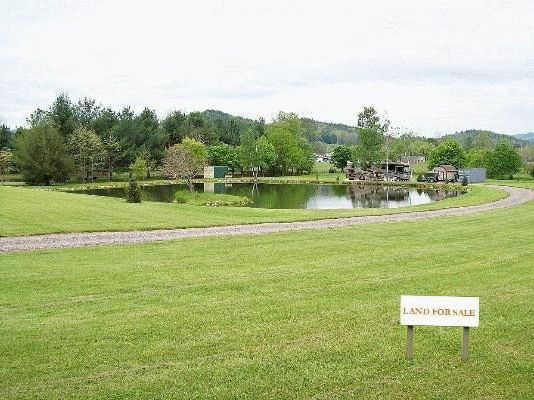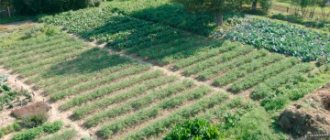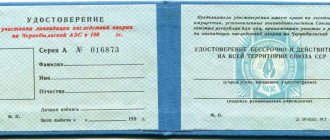Private ownership of land
The content of land ownership consists of powers
- possessions,
- use,
- orders (Article 209 of the Civil Code of the Russian Federation).
All three powers have a clearly defined physical and legal aspect. The general rights of land owners are enshrined, in addition to the specified article of the Civil Code of the Russian Federation, in Art. 40 of the Land Code of the Russian Federation (Rights of land owners to use land plots).
Art. 209 of the Civil Code of the Russian Federation in particular defines the following rights of the owner:
- alienate your property into the ownership of other persons;
- transfer to other persons, while remaining the owner, the rights of ownership, use and disposal of property;
- pledge property and encumber it in other ways;
- dispose of property in any other way.
More information about the powers of ownership, use, disposal of land
Ownership of land means physical possession of a piece of property, i.e. earth. A non-owner can own land, but only legally, i.e. in accordance with the law. Otherwise, ownership of land will be considered unauthorized seizure or unauthorized transfer of land, for which legal liability may apply under the law. This power is exercised by limiting access to the land plot for non-owners, i.e. persons who do not have the right to this land plot.
The right to use land makes it possible to exploit its beneficial properties and qualities. However, many owners do not use the land directly, but provide it for the possession and use of other persons. This is especially true for a land owner such as the state. As the experience of countries around the world shows, the owner in this case retains the right to extract benefits from the land he owns, but indirectly - by receiving rent for the land. The person to whom it is given possession directly uses the land. In this case, the use seems to be bifurcated. But as for the right of use, formally it belongs to the owner of the land - the tenant (and not the owner), since he directly exploits the land.
In many cases, the owner himself owns and uses his land. To separate these cases from cases of granting land for rent, in the theory of law, two categories of owners are distinguished: those who transfer and those who do not transfer land into someone else’s possession and use.
The right to dispose of land fully belongs only to the owner. The non-owner (tenant) either does not have this right at all, or he has it in a limited form and only with the consent of the owner.
The disposal of land can be expressed in two main forms:
- material (the right to irreversibly change the purpose of land, for example, its development, landscape redevelopment; measures to transform land, for example, planting forest in place of arable land or clearing up forest for pasture);
- legal (expressed in the right of the owner to sell, mortgage the land, give it as a gift, exchange it, bequeath it by inheritance, lease it in parts or in full, transfer it to another person for free use, contribute it to the authorized capital of the organization, i.e. the right to determination of the legal fate of a land plot as a thing. Sometimes here they add the right to choose a manager (an authorized person) who is entrusted to manage the farm on behalf and on behalf of the owner, as well as changing its legal regime by transferring a land plot from one category to another or changing the type of permitted use of land).
At the same time, the ownership, use and disposal of land and other natural resources, to the extent that their circulation is permitted by law (Article 129), is carried out by their owner freely, if this does not cause damage to the environment and does not violate the rights and legitimate interests of other persons.
Citizens and their associations can acquire land plots into private ownership:
- for a fee or free of charge from lands in state and municipal ownership (privatization);
- by making other transactions with land provided for by land legislation.
In accordance with Art. 15 of the Land Code of the Russian Federation, the property of citizens and legal entities (private property) are land plots acquired by them on the grounds established by civil legislation.
Land plots that are in state or municipal ownership may be made available to private property of citizens and legal entities, with the exception of land plots that, in accordance with the Land Code and federal laws, cannot be privately owned.
Foreign citizens, stateless persons and foreign legal entities cannot have ownership of land plots located
- in border territories, the list of which is established by the President of the Russian Federation in accordance with federal legislation on the State Border of the Russian Federation, and
- in other specially designated territories of the Russian Federation.
It should be noted that the objects of private property rights are land plots of only certain categories of land. The most liberal in this sense is the legal regime of agricultural lands, the acquisition of private property rights to which is actually not limited. Any agricultural land can be acquired into private ownership within the established limits.
According to Art. 27 of the Land Code of the Russian Federation cannot be provided for private ownership of land plots classified as lands:
- withdrawn from circulation (for example, state nature reserves and national parks);
- limited in circulation (for example, from the forest fund lands).
The powers of possession, use, and disposal may be limited by the state. Persons who have land plots as private property are assigned a number of responsibilities. They have to
- pay land tax on time,
- carry out measures to protect land,
- comply with the requirements of urban planning regulations,
- start using the land in a timely manner,
- effectively use the land in accordance with its intended purpose, etc.
The right of private property arises most often as a result of various types of transactions - purchase and sale of land, privatization, exchange, donation, inheritance, mortgage, acquisition of ownership of a land plot in state or municipal ownership (privatization).
Other grounds for the emergence of private property rights are:
- administrative legal acts (decisions of executive bodies of state power or local government bodies);
- acquisitive prescription;
- privatization.
The grounds for termination of private ownership of land are divided into voluntary and forced.
The right of private property is voluntarily terminated when:
- alienation by the owner of his land plot (transaction);
- termination of the activities of a legal entity;
- death of a citizen and transfer of ownership by inheritance to the state (municipal basis);
- voluntary renunciation of the owner’s rights to the land plot (Article 53 of the Land Code of the Russian Federation).
The right to private property is forcibly terminated in the following cases (articles not verified):
- foreclosure on a land plot for the obligations of the debtor (Article 278 of the Civil Code of the Russian Federation);
- non-use of a land plot in accordance with its intended purpose (Article 284 of the Civil Code of the Russian Federation);
- use of a land plot in violation of the law (Article 285 of the Civil Code of the Russian Federation);
- requisition of a land plot (Article 51 of the Land Code of the Russian Federation);
- purchase of a land plot for state or municipal needs (Article 49 of the Land Code of the Russian Federation);
- alienation of a land plot that, according to the law, cannot belong to a given person;
- nationalization of lands;
- confiscation of land (Article 50 of the Land Code of the Russian Federation).
The emergence, termination and change of private property rights to land are certified by a certificate of state registration of private property rights issued by justice institutions. The right of private property arises from the moment of such registration.
Objects and subjects of private land ownership
Objects of private land ownership are prescribed in Art. 15 Land Code of the Russian Federation. In particular, these are:
- land that has been registered in accordance with the legislation of the Russian Federation and is owned by a citizen or legal entity;
- land that is considered state or municipal property.
In this case, objects of law must have the following characteristics:
- individualization (each plot must have a cadastral number, boundaries defined and recorded in official documentation, area, as well as a certain type of use and purpose permitted by government agencies);
- qualitative characteristics (for example, allocated shares, if common shared ownership is provided);
- cadastral assessment of the value of a land plot;
- turnover capacity of the territory;
- divisibility of the plot, i.e. corresponding size.
Subjects of private property rights are also defined by Art. 15 Land Code of the Russian Federation. These are persons who are the owners of a particular piece of land, but the order and procedure for recognizing them as such must be fully observed.
Subjects of private property are considered:
- individuals (citizens of the Russian Federation, foreign citizens subject to certain restrictions imposed by the state, stateless persons);
- legal entities (including foreign ones with limited rights);
- Russian Federation;
- subjects of the Russian Federation;
- municipalities.
Types of private land ownership
Depending on the legal owner, private land ownership is divided into several types:
1) individual property of citizens and legal entities;
2) common property:
- general joint (without determining the shares belonging to each participant in the common joint property);
- common share (the share of each co-owner is known in advance).
Legal entities, as well as citizens, can, at their own discretion, unite land plots in their ownership and use them under the right of common joint and common shared ownership.
Common ownership of land plots arises
- by force of law (in cases provided for by law), or
- by agreement (by voluntary association by the owners of the land plots they own).
For example, Federal Law No. 74-FZ of June 11, 2003 “On Peasant (Farm) Economy” establishes that a land plot, like any other property of a farm, belongs to its members by the right of common joint ownership, unless an agreement between them the right of common shared ownership has been established.
Land plots located under multi-apartment residential buildings are the common shared property of all owners of premises in the multi-apartment building.
Types of land ownership
Depending on the composition of the subjects, we can talk about distinguishing the following forms of land ownership:
- Private property. The implementation of this form occurs in the interests of an individual citizen or any groups or associations.
- State property. The implementation of this form of ownership is carried out in the interests of society as a whole by the power of the state.
- Municipal property. In other words, it is local property. It is implemented in the interests of residents of a particular locality by local executive bodies.
The essence of land rights
According to the Civil Code of the Russian Federation, the essence of land ownership rights is determined by three components, also called powers, namely: possession, disposal, use.
Ownership of land means its physical ownership by the owner. However, it is not the owner who can own a land resource on the basis of documents legally confirming this authority. All types of rights to land presuppose the use of it, that is, the use of its beneficial properties (example: cultivating the land in order to grow crops on it).
Ownership and use are often perceived as the same action, but this is not entirely true. Sometimes the owner does not use his property, but also does not transfer ownership to another person. Example: forestry enterprises are rightfully the owners of forest land plots, but they themselves do not use them, but only protect them from illegal interference and control the activities of other forest users.
Types of possessions
The concept of types and forms of land ownership varies. When talking about types of property, it is assumed that it will be used for certain purposes , the legal status of the land plot, and the right to determine its future fate.
The land must belong to the owner legally, secured by registration in Rosreestr. This applies to both individual owners (individuals and legal entities) and collective ones.
Reference! In the absence of registration in Rosreestr, individuals and legal entities can exercise specific rights to use a land plot.
Permanent (unlimited) use
A citizen (legal entity) can enter into an agreement on this type of land use with the owner of the plot. This document must be endorsed by a higher authority that is in charge of the owner’s allotment.
The plot must have a cadastral number and registration. The use of land is controlled from the point of view of compliance of economic activities with the agreement.

Perpetuity means that
an individual or legal entity can use the plot for life
, but they cannot pass it on by inheritance.
This type of right, without registering the property as a plot of land, is possessed by government bodies of various levels, budgetary, government organizations, and presidential centers.
Persons who have land use rights before 2001, the date of entry into force of the Land Code of the Russian Federation, must register allotments in their property using stimulating and simplifying procedures taken in this direction by the state.
Lifetime inheritable ownership
This right is regulated by the Civil Code of the Russian Federation as amended on December 16, 2019. In Art. 266, part 1 it is written that a land plot received by inheritance gives the heir the opportunity to own and use the allotment . He can build houses on it, construct other real estate objects with the acquisition of ownership rights to it.
Important! The plot itself is not the property of the testator. The right to lifelong ownership of the plot is transferred by inheritance. Inheritance of this right occurs on a general basis in accordance with inheritance legislation.
Rent
This is not ownership of the plot, but an urgent right to use it. It is formalized by an agreement that establishes the rights and obligations of both parties - the landlord and the tenant. All owners (state, municipalities, private and legal entities) can rent out plots.
The main features of renting a storage unit are compensation, payment, repayment. That is, the contract is concluded for a certain period, you must pay for the use of the site, and upon expiration of the period, return it to the owner in the condition specified in the contract.
Easements on land plots
This is the right to limited use of plots for personal purposes belonging to other persons.
Features of easements are:

the owner retains the right to dispose of the plot, transfer, sell, lease;- entering facts of encumbrance into cadastral acts;
- the possibility of the owner receiving payment for the use of the site;
- other parties to the transaction are deprived of the opportunity to acquire ownership rights to this land plot.
Easements are divided into private and public. There are differences between them:
- A public easement is formalized on the basis of regulations of municipalities or regions.
- A private encumbrance is the result of an agreement between the parties or a court order.
- According to the public agreement, the use of land is free of charge. A private individual can impose monetary compensation for land use.
Important! The public version of the easement provides for a wide range of interested parties. A private easement is an agreement between two specific parties.
Regulates legal relationships regarding easements under the Land Code of the Russian Federation (as amended in 2019). The basics of regulation are described in Art. 23 – it discusses the right to impose restrictions.
Video on the topic
Private property
- one of the forms of ownership, which implies the legally protected right of an individual or legal entity, or their group, to a property.
Private property includes: individual, corporate, cooperative, joint stock, intellectual, copyright and any other non-state form of ownership. At the same time, state property also fits the definition of private, since the state is a legal entity. Public property is not considered private property.
A special form of private property was the ancient form of ownership, in which land plots could be sold, donated and exchanged, but only to fellow citizens, while the state could limit the size of land plots owned by citizens. The ancient form of ownership was common in all Greek states of antiquity, except for Sparta and Crete, where state ownership of land was established. In the V-III centuries. BC e. Private property also appeared in Rome, where it coexisted with family property for a long time.
Private property rights
in the capitalist legal system, it is one of the fundamental personal rights and is considered in the field of property law.
Features of private property
A private owner has the right to deal with his property at his own discretion (sell, donate, bequeath, etc.) without coordination with public authorities (state or municipal bodies, their representatives). Therefore, private property is sometimes seen as the opposite of state and municipal property.
The institutions of private property become more complex as society develops, but it is an integral part of a market economy.
The transfer of ownership of property from state (municipal) to private ownership is called privatization. The reverse transition is called nationalization.
IN
pre-revolutionary Russia
In the Grand Duchy of Moscow there was the property of the Grand Duke, the property of appanage princes and the property of the boyars - patrimony. The landowners were not the owners of their estates, the estates belonged to the Grand Duke, and the landowners were its holders. The Decree on Single Inheritance, issued in 1714, equating estates to patrimony, effectively declared estates the private property of landowners. Later during the 18th century, representatives of other classes - the merchant class and the state peasantry - were allowed to own land as private property.
Private property in the USSR
In the USSR there was a separation of the concepts of personal and private property. The main difference was the inadmissibility of privately owned means of production based on labor input. Also, the concept of private property was contrasted with the concept of state property.
This was due to the understanding of private property
as a type of property in which part of public property is alienated from public ownership in favor of a private owner and is used for the legalized robbery of those who actually create material wealth in favor of the formal owner of private property in the means of production.
The separation of private and personal property is accepted in socialist theories, including Marxism and anarchism.
This understanding of private property and the use of its own terms that somehow define private property are characteristic of the left wing of anarchism: left anarchism, anarchomaximalism, anarchocommunism, anarchocollectivism, as well as communist
left communists, orthodox communists, a significant part of social democrats, some socialists. In the right wing of anarchism, such movements as anarcho-individualism, anarcho-capitalism, libertarianism, anarcho-nationalism, etc., the concept of private property is usually not used in theory at all.
Private property in Russia
The restoration of the institution of private property in Russia took place in 1990.
In Russia, private property is one of the forms of property defined in the Constitution (Part 2 of Article 8: “in the Russian Federation, private, state, municipal and other forms of property are recognized and protected equally”) and the Civil Code (Clause 1 of Art. 212: “In the Russian Federation, private, state, municipal and other forms of ownership are recognized”).
The legislation of the Russian Federation provides for the exclusion from private ownership of certain types of property “which, in accordance with the law, cannot belong to citizens or legal entities.”
Private property in China
Formally, in China, since 2007, private property has been declared on an equal basis with state property to almost full extent, including the right of inheritance, but with the exception of private ownership of land.
Grounds and procedure for alienation of privately owned land
The right to own a land plot may be terminated in the following cases:

- when transferring a land plot to other persons;
- if the owner himself renounces the right of ownership;
- collection of land for debts of the owner;
- the land was not used for its intended purpose;
- when operating a site in violation of the law;
- temporary seizure of land during natural disasters and epidemics in order to protect the interests of citizens;
- taking away a plot in the interests of the state or municipality;
- nationalization of lands;
- confiscation;
- alienation of a plot if, by law, it cannot belong to this person.
In the case where the owner voluntarily renounces the land, he must draw up the relevant documents with a notary. The owner also has the right to donate, sell, and bequeath his property.
If a decision is made to confiscate land, it is taken free of charge by court decision. But such alienation is used as a punishment for serious crimes.
When a plot is temporarily withdrawn, its owner is given a corresponding document and the amount of the possible loss is paid, and when the circumstances on the basis of which the land was taken end, the owner can get it back.
When a plot is taken in the interests of the state or municipality, the owner is notified in writing about it a year before the event, the cost of the plot is paid, or an equivalent one is provided elsewhere.

If the land is taken for debts, then you need to obtain a corresponding court decision, make an inventory and evaluate the site. Then it is sold at auction, the debt obligations are paid off, and the difference is given to the owner.
A plot of land can be taken away if it was used for other purposes or in violation of the law. In this case, the owner must be notified in writing of such a decision. If he agrees with him, then the land is sold at auction. Otherwise, you need to go to court.
When alienating a plot, if it cannot belong to this person, then such a decision is made by the court.
Nationalization can be carried out in two ways: as a gratuitous seizure or a full or partial redemption.
Termination of ownership
Termination of ownership of land plots can be carried out in the following legal ways:
- The most common method is civil law acts. These may be commercial transactions, as a result of which the owner loses the rights of ownership. Often ownership of land is terminated by gift, as well as by exchange. However, in the event of an exchange, the owner loses ownership of one plot of land and acquires another.
- Relinquishment of ownership. In this case, the termination of the right is postponed until it is acquired by another person.
- Purchase of land for public use.
- Seizure of property for the owner's obligations. Example: recovery by a credit institution of the collateral (land) from the owner as a result of the latter’s failure to fulfill the obligations.

Objects and subjects of property rights
When examining the issue concerning land and ownership of it, let's talk about objects and subjects.
As for the object, in this case it is a piece of land that belongs to one or another entity. There are certain nuances here.
Under no circumstances can those lands that are excluded from circulation (national parks, various natural monuments, nature reserves), as well as lands whose circulation is limited (for example, forest lands) be recognized as objects of ownership rights.
Mandatory characteristics of an object of ownership include its cadastral valuation, size, location, and turnover.
Since in Russia, which is a federal state, there are two levels of government, state property (including land) can be divided into the property of local governments and authorities (municipal), as well as the property of state entities.
Let's start with the property of the constituent entities of the Russian Federation. Here we are talking about lands:
- defined in this group by federal regulations;
- transferred free of charge from state property;
- acquired on the grounds provided by law
- included here due to the delimitation of state property.
Now about municipal, local property. This includes lands:
- classified as local property by regulatory documents;
- ownership of which appeared during the delimitation of state property;
- acquired on the basis of the grounds set out in the Civil Code;
- transferred from state property free of charge.
We invite you to familiarize yourself with: Title documents for land plots of unlimited permanent use: regulatory requirements
Let's move on to the subjects. They are the owners of a particular land plot, recognized as such in accordance with the requirements of the law.
If we turn to Article 15 of the Land Code of Russia, we will see that this includes:
- Individuals (citizens of the Russian Federation, and in addition to them - foreign citizens and stateless persons (with certain restrictions);
- Organizations (foreign - with restrictions);
- Subjects of the federation;
- Municipal entities.
Any subject of land ownership must have legal capacity and capacity.
Legal capacity means the ability to have certain rights and obligations. And legal capacity is to manage these rights and responsibilities.
What is personal ownership of land and how does it differ from private property?
Private ownership of land presupposes not only ownership, but also the ability to freely dispose of it. That is, in this case, the plot can be sold, rented out, or used.
If you own the plot personally, you can only use it, but you cannot make various transactions. In this case, the person is not the legal owner of the land.
Pros and cons of private land ownership
The undoubted advantages of private land ownership are:

- economic market development;
- increase in trade turnover;
- attracting foreign investment;
- encouraging wise use of the site;
- will force citizens to increase their wealth;
- efficient distribution of resources, their development.
Among the disadvantages we can only name the uneven distribution of economic benefits, possible conflicts in society, and financial expenses.
Private ownership of land allows an ordinary citizen or an entire organization to own and independently manage it. However, there are certain restrictions on ownership, as well as grounds for alienation of the plot. Undoubtedly, this form of ownership has a number of advantages, including economic development, both personal and of the state as a whole.
Registration of land ownership
What exactly is the procedure for registering ownership of land and what is the amount of state duty for such actions depends on the basis for the acquisition. Of course, most often the right of ownership arises as a result of one or another civil transaction.
In this case, you need to provide all the necessary documents to Rosreestr. Such documents include:
- Application of the established form (Rosreestr will provide such a sample and help with drawing up the application);
- Passport or other identification document (if a representative of the applicant came to Rosreestr, he must provide a notarized power of attorney);
- A document confirming payment of the state fee;
- Cadastral plan (an extract is made from it);
- A document confirming the completion of the transaction (purchase and sale agreement, gift, exchange);
- Documents from the second party who is alienating the land, confirming ownership of the land.
If a plot of land is inherited, you must provide the following documents to Rosreestr:
- Extract from the cadastral plan of a plot of land;
- Passport, other document allowing identification or power of attorney (in case of representation);
- Document on the right to inheritance (certificate);
- Document confirming payment of state duty.
- Statement of the established form.
According to the Constitution (Article 62), foreign citizens, as well as stateless persons, have equal rights and obligations with persons who are citizens of Russia. But there are a number of restrictions, including those regarding land ownership rights. Thus, such persons do not have the right to own agricultural land. But this ban does not apply to plots where private farming is carried out, as well as occupied by buildings and structures.
Non-residents cannot obtain ownership of a land plot in the border area (the list of such territories is established by law). There is a ban on the ownership of those plots of land that are provided to members of gardening associations. True, citizens of other states can become members of such associations if they lease the land.
We invite you to read: Decorating a house under the dacha amnesty
Foreign citizens, as well as persons without citizenship, cannot receive a land plot in their ownership free of charge, if this plot is in perpetual use or inherited lifelong ownership (for citizens of the Russian Federation this is free).
However, despite certain restrictions, non-residents have the right to receive land through various transactions, as well as by inheritance. As a result of these actions, they will acquire ownership of the land.
Existing types of land rights in the Russian Federation
There are several types of rights to own a land plot. The types and forms of land rights, as well as their content, are clearly visible in modern legislation, in such bills as the Land Code of 2001 as amended, the Constitution, and Federal Law No. 101-FZ. The classification of these property rights has a hierarchical structure, which can be divided into two groups: real rights and obligations.
The group of real rights consists of direct ownership and types of other rights to land (lifetime inheritable ownership, perpetual permanent ownership, limited ownership of other people's property). Other real rights also enable their owner to dispose of a land plot according to the target value, but taking into account the discretion of the owner of the territory. Obligatory types of rights to land are: lease and gratuitous fixed-term use. Let's consider each of these types separately.
Right of perpetual permanent possession
Another institution of post-Soviet land law is the right to permanent use of a territorial resource. This right was also granted to expand the private sector, but in relation to legal entities. Currently, this right has been partially abolished, or rather, the circle of subjects of legal relations has narrowed. If in post-Soviet times lands were transferred to all applicant legal entities for indefinite possession, today the circle of applicants for this right has narrowed to state entities (state and municipal organizations, local governments, government institutions). Other organizations are deprived of this right, which, however, does not prevent them from obtaining a lease for this site.
Rent a plot
It is also possible to use land plots and benefit from them without being their owner through leasing. To do this, a fixed-term agreement is concluded between the landlord and the tenant, according to which the tenant has the right to use this site for the amount of money specified in the contract and subject to compliance with the agreed conditions.
The tenant has the right not only to use the leased land for its intended purpose, but also to use the lease rights for the term of the agreement as a contribution to the authorized capital, pledge or share contribution, and also transfer them to a third party. To perform these actions, if this does not contradict the concluded agreement, additional consent of the land owner is not required; only his written notification is sufficient. At the same time, the lessor has the right to demand termination of the lease through the court only in case of gross violations of the contract. Upon expiration or termination of the lease agreement, the rights to the land plot are fully returned to the lessor.









